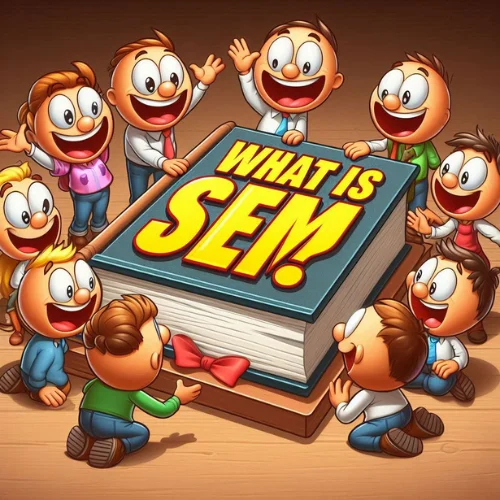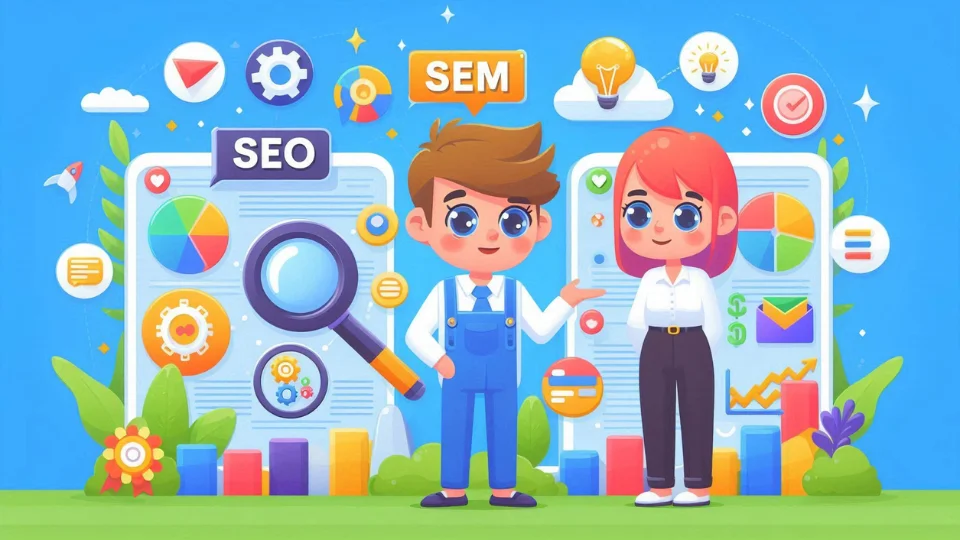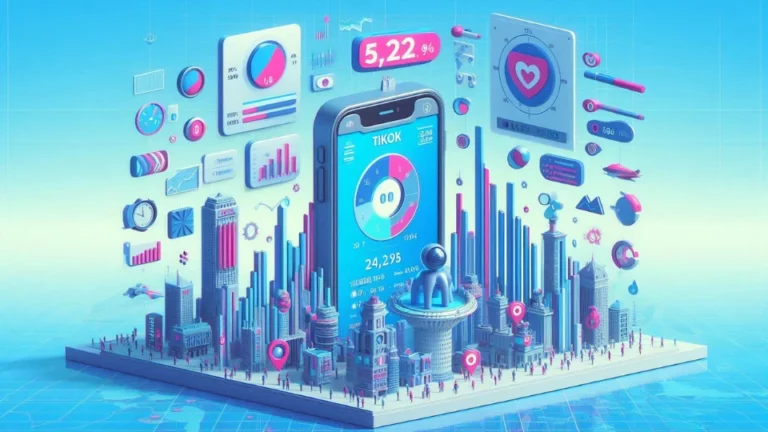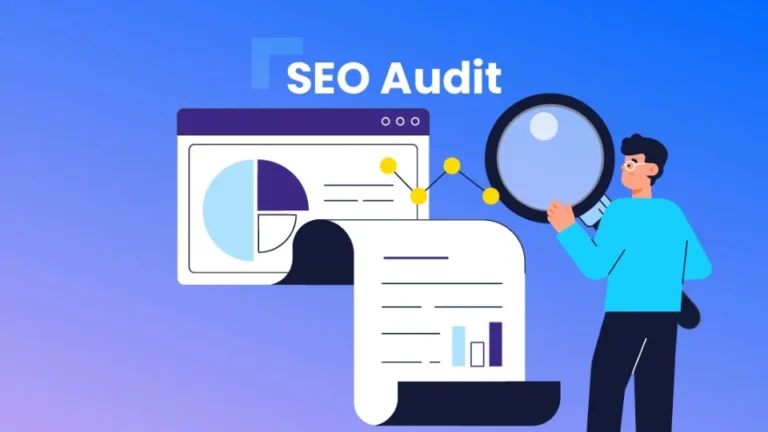SEO vs. SEM: What’s The Difference?
Understanding the difference between SEO and SEM is crucial for building a successful digital marketing strategy. While both are aimed at increasing visibility and attracting traffic from search engines, they operate differently and serve unique purposes. Whether you’re new to online marketing or looking to refine your strategy, this guide will help you make sense of SEO vs. SEM and how to use each effectively.
What is SEO?

SEO (Search Engine Optimization) is the process of improving your website to increase its visibility on search engines like Google organically—without paying for ads.
Key Components of SEO:

- On-Page SEO: Optimizing content, meta tags, headings, and internal linking.
- Off-Page SEO: Building backlinks and promoting content externally.
- Technical SEO: Enhancing site speed, mobile-friendliness, and crawlability.
- Content Quality: Creating relevant, valuable, and keyword-rich content.
What is SEM?

SEM (Search Engine Marketing) is a broader term that includes paid strategies to increase visibility in search engine results. It often focuses on PPC (Pay-Per-Click) advertising.
Common SEM Tactics:
- Google Ads: Bidding on keywords to display ads at the top of search results.
- Ad Copywriting: Writing compelling ads that drive clicks.
- Landing Page Optimization: Creating effective landing pages for conversions.
- Budget Management: Monitoring and adjusting ad spend for ROI.
SEO vs. SEM: Side-by-Side Comparison
| Feature | SEO | SEM |
|---|---|---|
| Traffic Type | Organic | Paid |
| Cost | Long-term investment | Pay-per-click |
| Speed of Results | Slower (long-term gain) | Immediate visibility |
| Sustainability | High (builds over time) | Dependent on ad budget |
| Click-Through Rate (CTR) | Often higher for organic | Can be high but costly |
| Strategy Focus | Content & technical optimization | Paid campaigns and bidding |
Pros and Cons of SEO
Pros:
- Cost-effective in the long run
- Builds credibility and trust
- Sustainable and compounding results
Cons:
- Requires time to see results
- Needs regular updates and optimization
- Dependent on algorithm changes
Pros and Cons of SEM
Pros:
- Fast, immediate results
- Targeted reach (demographics, location, etc.)
- Easily measurable ROI
Cons:
- Can be expensive over time
- Stops generating traffic once you stop paying
- Requires constant monitoring and testing
When to Use SEO vs. SEM
Use SEO when:
- You want to build long-term authority
- You have limited ad budget
- Your focus is sustainable growth
Use SEM when:
- You need quick visibility and traffic
- You’re launching a product or promotion
- You have a defined advertising budget
Can You Use Both Together?
Absolutely. Many successful digital strategies use a combination of both. SEO builds your foundation, while SEM can provide an immediate boost.
Benefits of Integrating SEO & SEM:
- Enhanced keyword data for strategy refinement
- Wider coverage of search engine results pages (SERPs)
- Balanced short- and long-term growth
FAQ: SEO vs. SEM
Is SEO better than SEM?
Not necessarily. SEO is better for long-term growth, while SEM is ideal for quick, targeted traffic. The best choice depends on your goals.
How long does SEO take to show results?
Typically, 3 to 6 months. It varies based on your industry, competition, and strategy.
Can SEM improve my SEO?
Not directly, but SEM campaigns can generate traffic that may lead to backlinks and other SEO benefits.
Is SEM only for Google?
No. While Google Ads is the most popular, SEM also includes Bing Ads, YouTube Ads, and even search ads on platforms like Amazon.
Conclusion: Choosing the Right Strategy
SEO and SEM are both powerful tools in the digital marketing toolbox. If you want immediate traffic, SEM is your go-to. If you’re planning for long-term success, invest in SEO. Ideally, combine both to maximize your reach and results.
Start with what aligns best with your business goals, budget, and timeline—and build from there.







